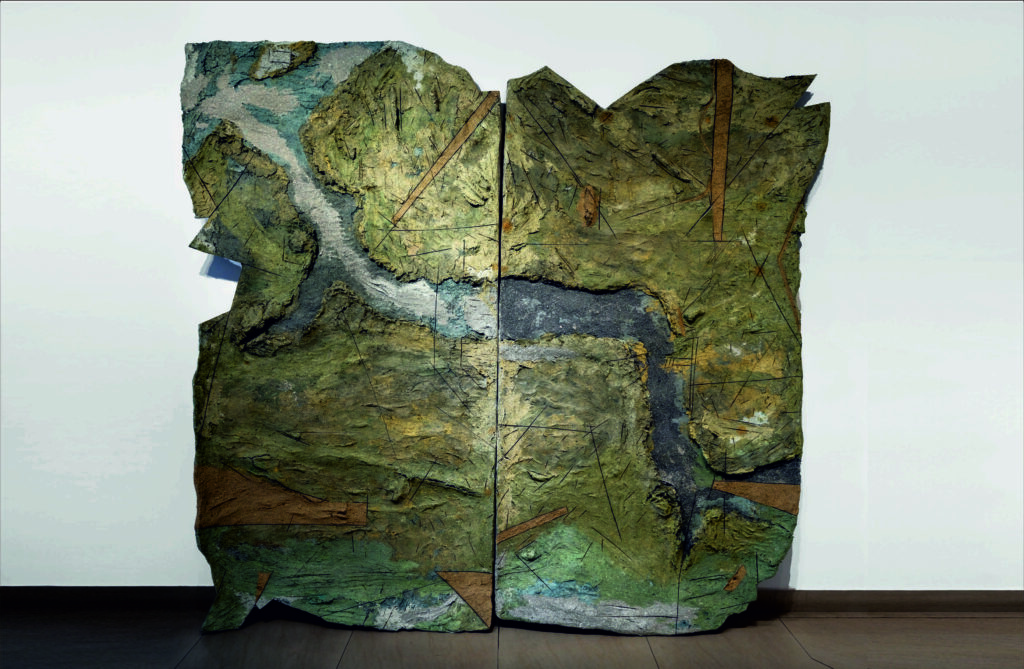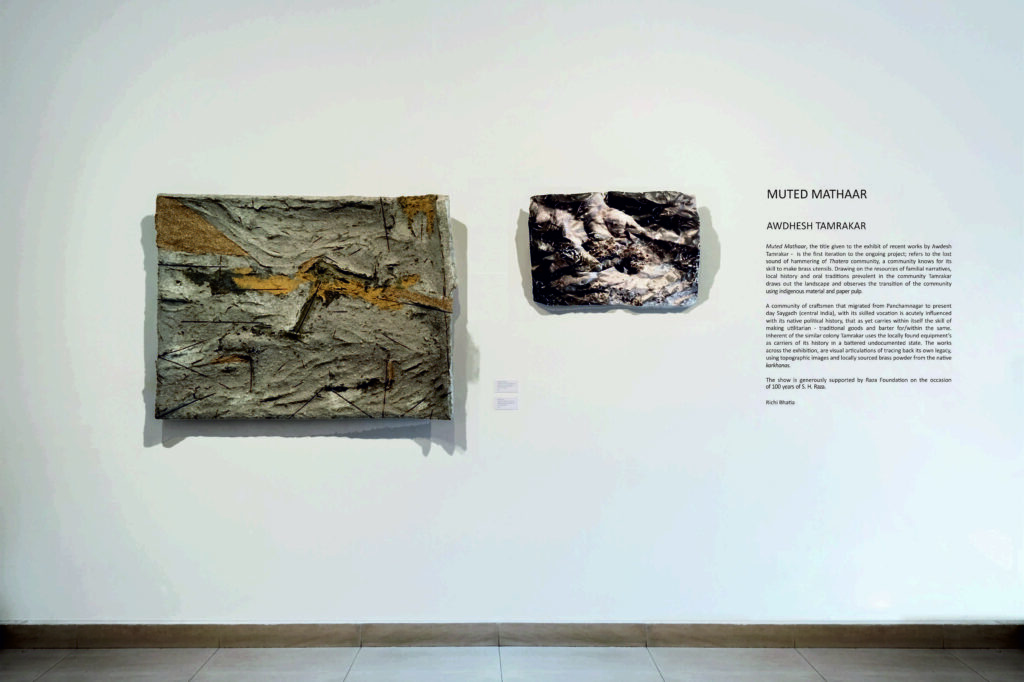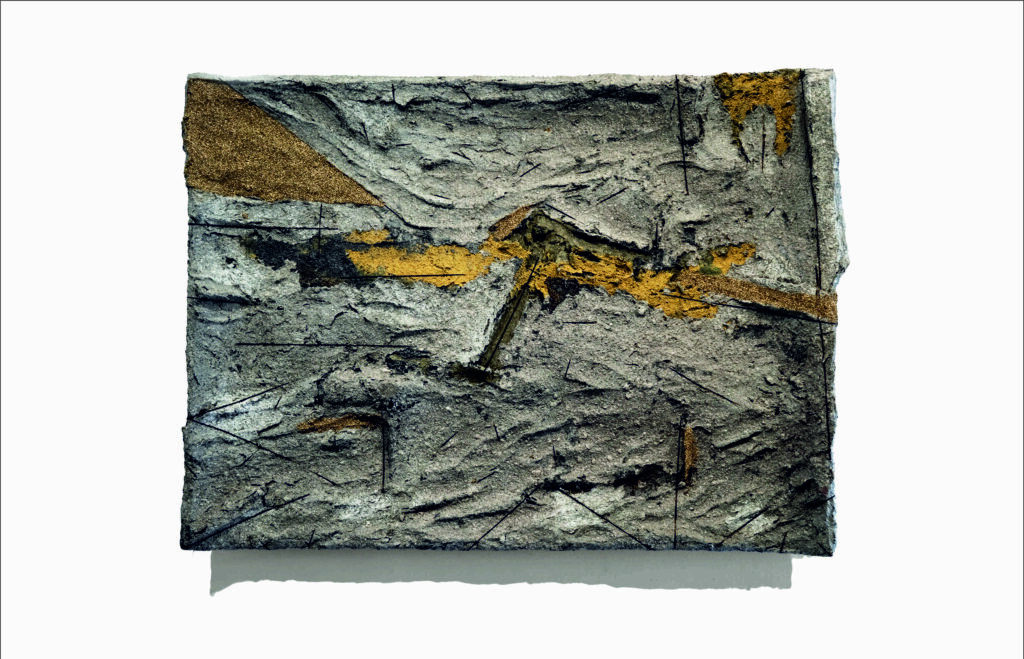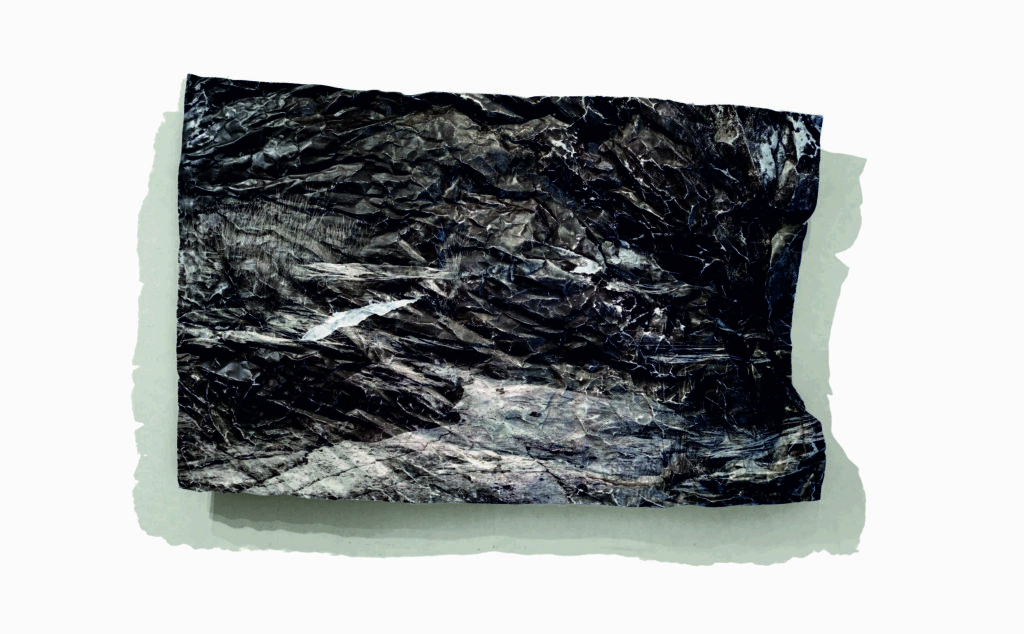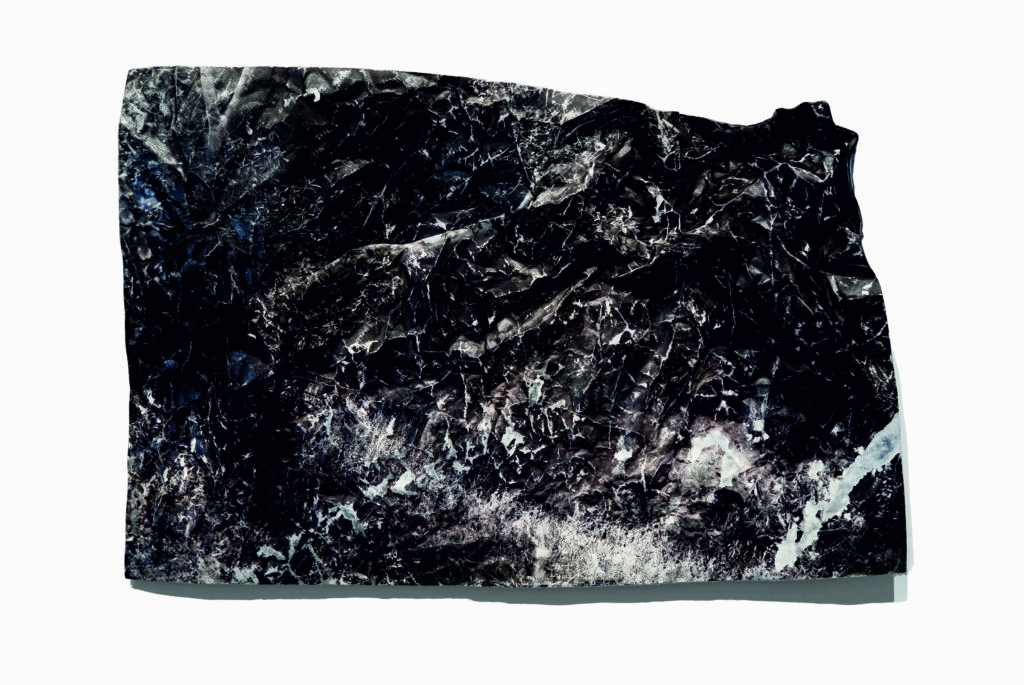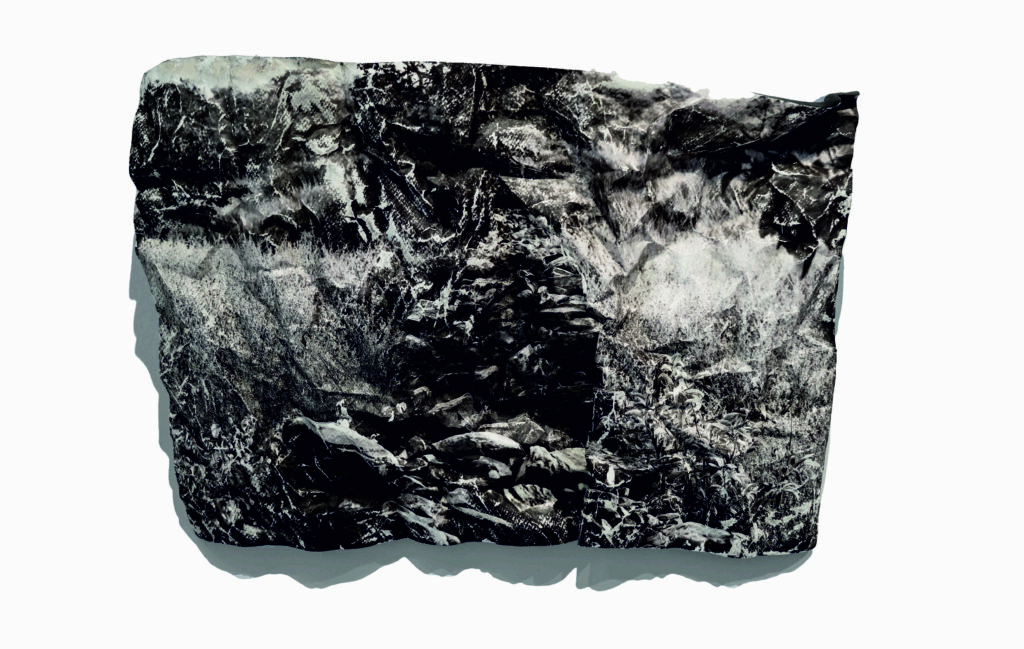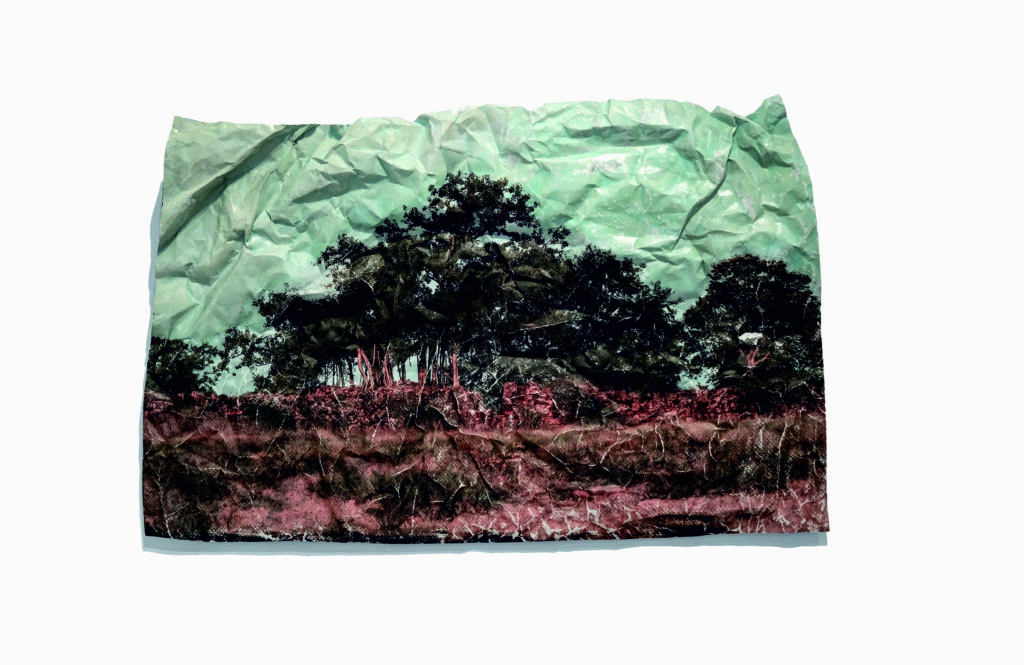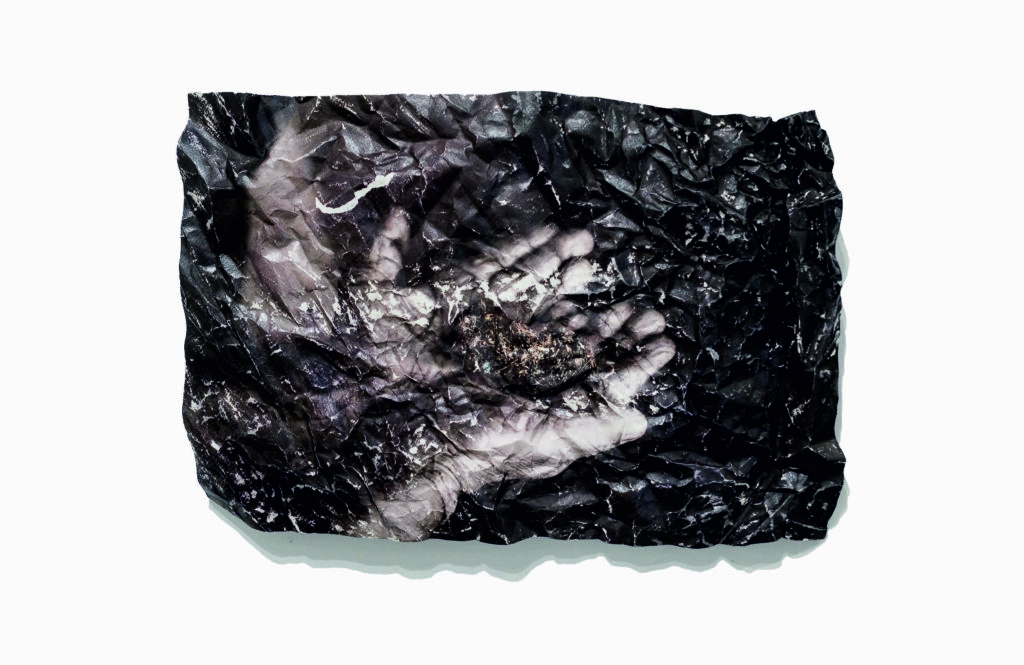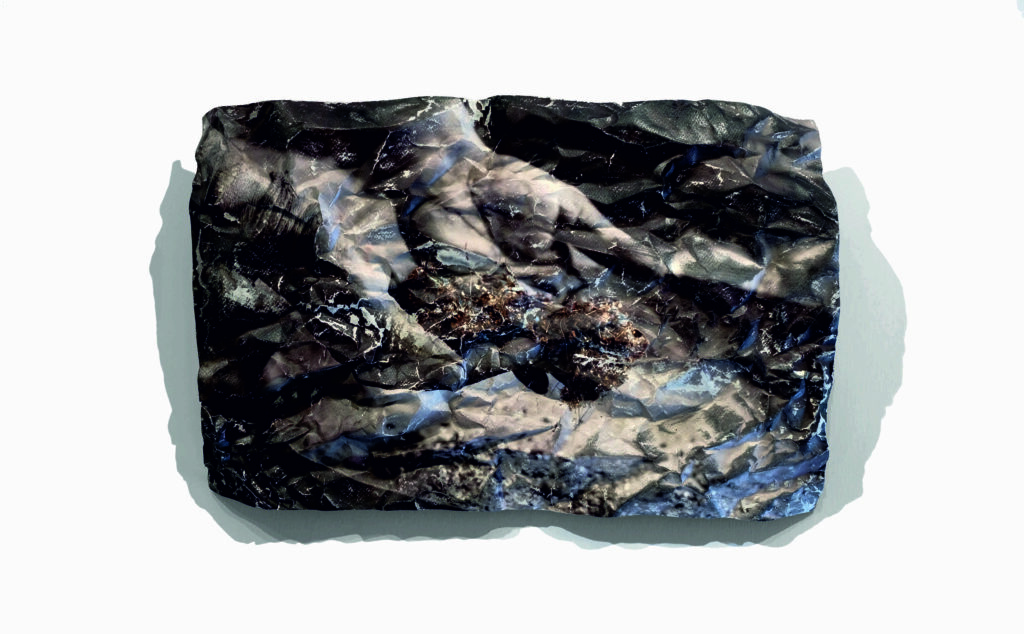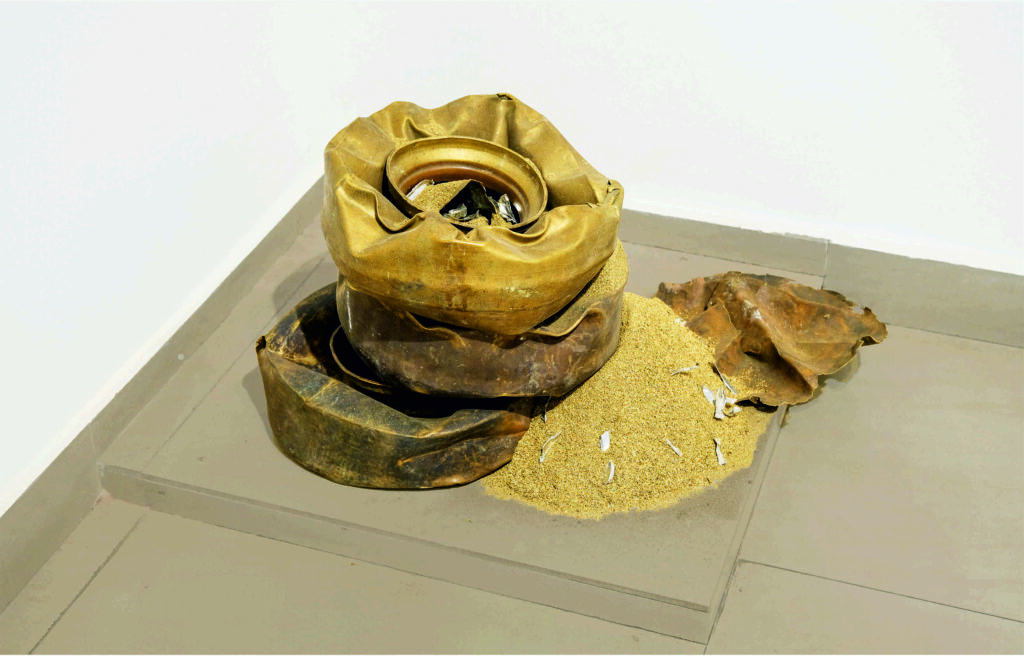Muted Mathaar
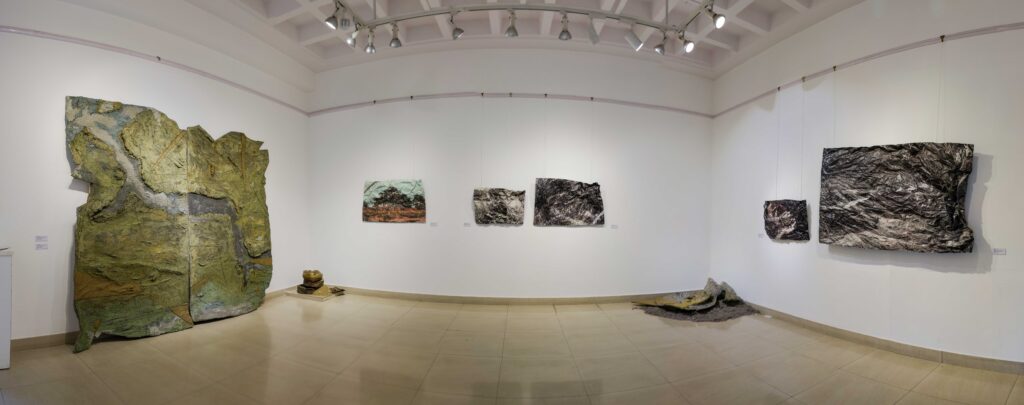
Awdhesh Tamrakar’s new works deal with many of the issues that haunt and define our contemporary: movements, migrations, quests for home, identity and belonging; un-documented stories, silent and silenced histories — especially of non-literate, disenfranchised and marginalized communities. His works are testimony to the truth that a free, fearless and sustained engagement with materials, process, tools and ideas can open unsuspected doors to an intensely personal and meaningful visual practice. That contemporary artistic aesthetics, discourses and insights can take on generational and genealogical resonances.
At first glance, the large and small works that make up the show are varied and impactful. Photographs of landscapes and topography (crushed and re-inforced on fibreglass), brass powder (collected from traditional iron-smithy studios and karkhanas), copper vessels (broken, beaten and hammered out of shape), large panels of sculpted pulp (moulded by hand from paper boards) share space and vie for attention on walls, floors and pedestals. Together they tell of his journey as an artist – one who was formally trained in a colonial/post-colonial visual language, but who now also seeks to join the dots of overheard conversations in family settings of abandoned homes and historical migrations. Awdhesh was taken aback when he realized, only rather recently, that the place that his grandfather thinks of as home, is not where the family has always lived, but instead, is nestled somewhere between Damoh and Sagar (between Khajuraho and Sanchi), from where their community of Thateras (brass and copper utensil makers) migrated more than 250 years ago. It was a migration, his grandfather says, forced by plague, drought and dacoits.
This place, Pancham Nagar, was once well-known for its paper board (gatta) factory, and for the distinct, un-mistake-able sounds of hammers steadily beating upon brass and copper sheets being fashioned into vessels for domestic use. Mathaar then, is process; mathaar is sound, mathaar are the distinctive patterns and textures that emerge when hammer strikes on metal. It is a sound long muted in Pancham Nagar, but it continues to whisper and echo on in the stories and identities of generation of the thatera immigrants who spread to nearby cities and towns, in search of new places of work and livelihood.
Awdhesh’s engagement with these diverse materials – pulp, brass, copper, hammer, photographs — is therefore deep, personal and vested. His works are testimonies that the histories of the craftsmen communities (such as the thateras) are indeed embedded in time-honored metal-working (and other) practices, that they are expressed, sometimes, in nostalgia-filled oral retellings of their family stories. Works like his are crucial, urgent and indispensable interventions in the resistance to the erasure of the voices and lived experiences of traditional and migrant crafts-persons all over the world, especially in our times.
Text by: Kirtana Thangavelu
